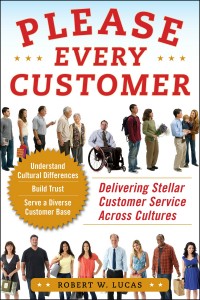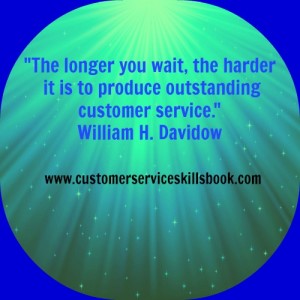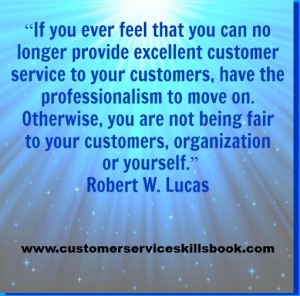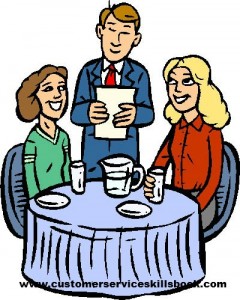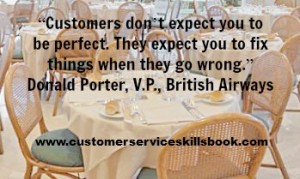Customer Service Training Activity – Subconscious Gender Stereotypes
Since ongoing gender communication and interactions between employees and customers is a daily event in most workplaces; organizations must help employees at all levels identify and correct negative stereotypes that might exist between male and female employees.
The following activity is a simple means for getting adult learners active in identifying potentially damaging perceptions they might have about genders and to engage in a productive dialog to help overcome stereotypes that they might unconsciously harbor.
Trainers, supervisors or team leaders can use this activity during a formal customer service or communication training session or at a department staff meeting. Once all trainees have completed the self-assessment, either form small groups of lead a discussion to share individual results and discuss how to improve any issues that surface related to stereotypes.
Instructions to Learners:
Many people have been conditioned since they were young children about acceptable gender roles for males and females in their culture as either masculine or feminine. Often these beliefs create challenges when you are serving customers.
To identify potential predispositions that you may have related to gender roles that are assigned to men and women in your society, give your first impressions for each adjective below. Do not think about the word, just react by placing an “F” by words that you feel best to describe females, an “M” by those that describe males and a “B” by those that could describe both females and males. Don’t go back to change an answer later.
Self Assessment:
Truck driver ___ Soccer/Football player___ Sky diver____
Airline pilot___ Pastry baker____ Chef___
Baseball fan___ Dog groomer____ Bus driver___
Entrepreneur___ Service professional____ Nurse___
Romantic___ Courageous____ Emotional____
Spontaneous____ Impatient____ Goal-oriented___
Sensitive____ Funny___ Powerful___
Strong___ Competitive____ Loving___
Outspoken____ Assertive___ Talkative___
Nurturing___ Intelligent____ Driven___
Intuitive____ Sexy___ Critical___
Once you have finished, go back and look to see how many of each letter you recorded. Most people typically have a mix of all three. If you look closely and think of all the people you have known, heard or read about in your lifetime, you probably know some who fall into both categories. Therefore, if there is even one incident where an adjective could describe the opposite gender from the one that you’ve indicated, you may have some hidden stereotypes related to men or women and the gender roles they can/should fill. This does not mean that you are a prejudiced or a “bad” person. It simply means that you may want to work on expanding your knowledge about others and trying to develop a more open-minded perspective of them so that you do not inadvertently do or say anything that might endanger the customer-provider relationship.
Customer service training activities, customer service tips, customer service training ideas, and other useful information, related to interacting with diverse internal and external customers and that can lead to the delivery of excellent customer service, can be found in Please Every Customer: Delivering Stellar Customer Service Across Cultures.

